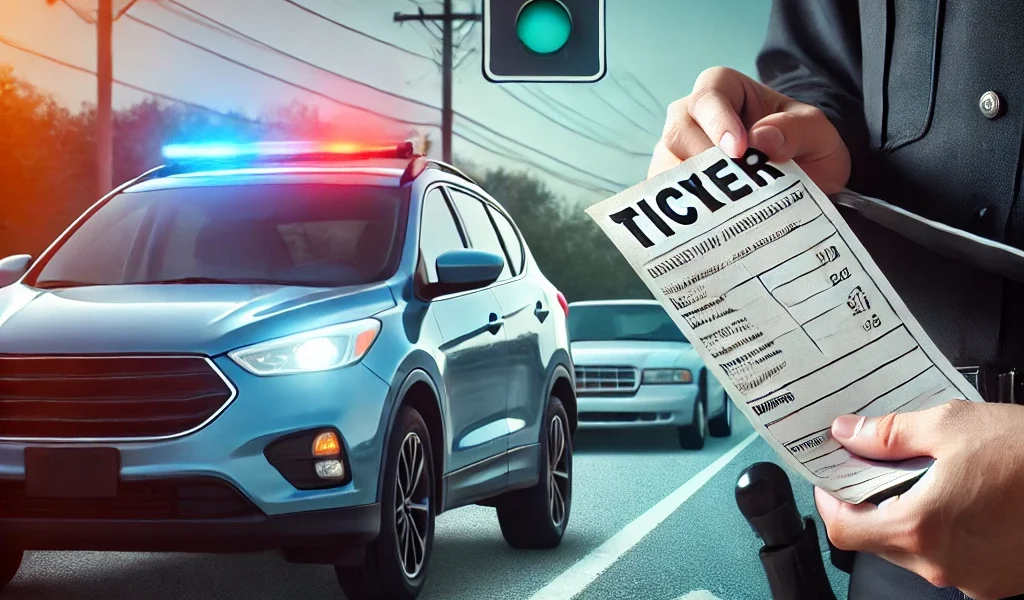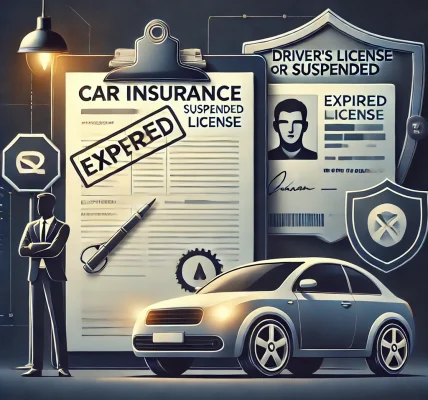Introduction
Car insurance is an essential aspect of vehicle ownership, providing financial protection in case of accidents, damages, and liabilities. However, many drivers are unaware of how their driving behavior directly affects their insurance premiums. Traffic violations, such as speeding tickets, reckless driving, and DUIs, can significantly impact the cost of your car insurance. This article explores how traffic violations influence insurance rates and what steps you can take to minimize their impact.
How Traffic Violations Affect Your Insurance Rates
Insurance companies determine premium rates based on risk assessment. When you receive a traffic violation, insurers perceive you as a higher-risk driver, leading to increased premiums. Here’s how different types of violations can impact your rates:
1. Speeding Tickets
- Speeding is one of the most common traffic violations.
- A single speeding ticket may lead to a moderate increase in premiums.
- Multiple speeding violations within a short period can lead to even higher costs and potential policy cancellation.
2. Reckless Driving
- Reckless driving includes aggressive driving behaviors such as excessive speeding, tailgating, and unsafe lane changes.
- Insurers consider reckless drivers as high-risk, resulting in significant premium hikes.
3. Driving Under the Influence (DUI/DWI)
- DUI/DWI convictions are among the most severe violations.
- Most insurance companies classify DUI offenders as high-risk, leading to premium increases of 50% or more.
- Some insurers may even refuse to renew policies for DUI offenders.
4. Running Red Lights and Stop Signs
- Ignoring traffic signals increases the likelihood of accidents.
- Insurance companies penalize drivers with higher premiums due to the elevated risk.
5. Distracted Driving (Texting While Driving)
- With the rise of smartphones, distracted driving violations have become more common.
- Insurers view distracted drivers as more accident-prone, leading to higher premiums.
6. At-Fault Accidents
- Being found at fault in an accident can cause significant insurance rate increases.
- The more severe the accident, the higher the potential impact on premiums.
How Long Do Traffic Violations Affect Insurance?
- Minor Violations: Typically remain on your record for 3 years.
- Major Violations (DUIs, Reckless Driving, At-Fault Accidents): Can impact your insurance for 5-10 years, depending on the severity and state laws.
- Multiple Offenses: A pattern of violations can keep your rates high for an extended period.
Ways to Minimize the Impact of Traffic Violations on Your Insurance
1. Drive Safely and Avoid Violations
- The best way to keep insurance costs low is to maintain a clean driving record.
2. Take a Defensive Driving Course
- Many insurers offer discounts to drivers who complete defensive driving courses.
- This can also help reduce points on your driving record in some states.
3. Shop Around for Better Rates
- Different insurance companies weigh violations differently.
- Comparing quotes from multiple insurers can help find a better rate.
4. Request Forgiveness Programs
- Some insurers offer accident forgiveness programs, where your first minor violation won’t impact your premium.
5. Increase Your Deductible
- Opting for a higher deductible can lower your premium, even if you have violations.
6. Improve Your Credit Score
- Many insurers consider credit scores when determining rates.
- A higher credit score can help offset the impact of traffic violations.
Conclusion
Traffic violations have a direct impact on car insurance costs. While minor infractions may cause slight increases, serious offenses like reckless driving and DUIs can result in substantial premium hikes or policy cancellations. The best way to keep your insurance costs low is to drive responsibly, take advantage of insurance discounts, and compare policies from different providers. By staying informed and proactive, you can minimize the financial consequences of traffic violations and maintain affordable car insurance coverage.




